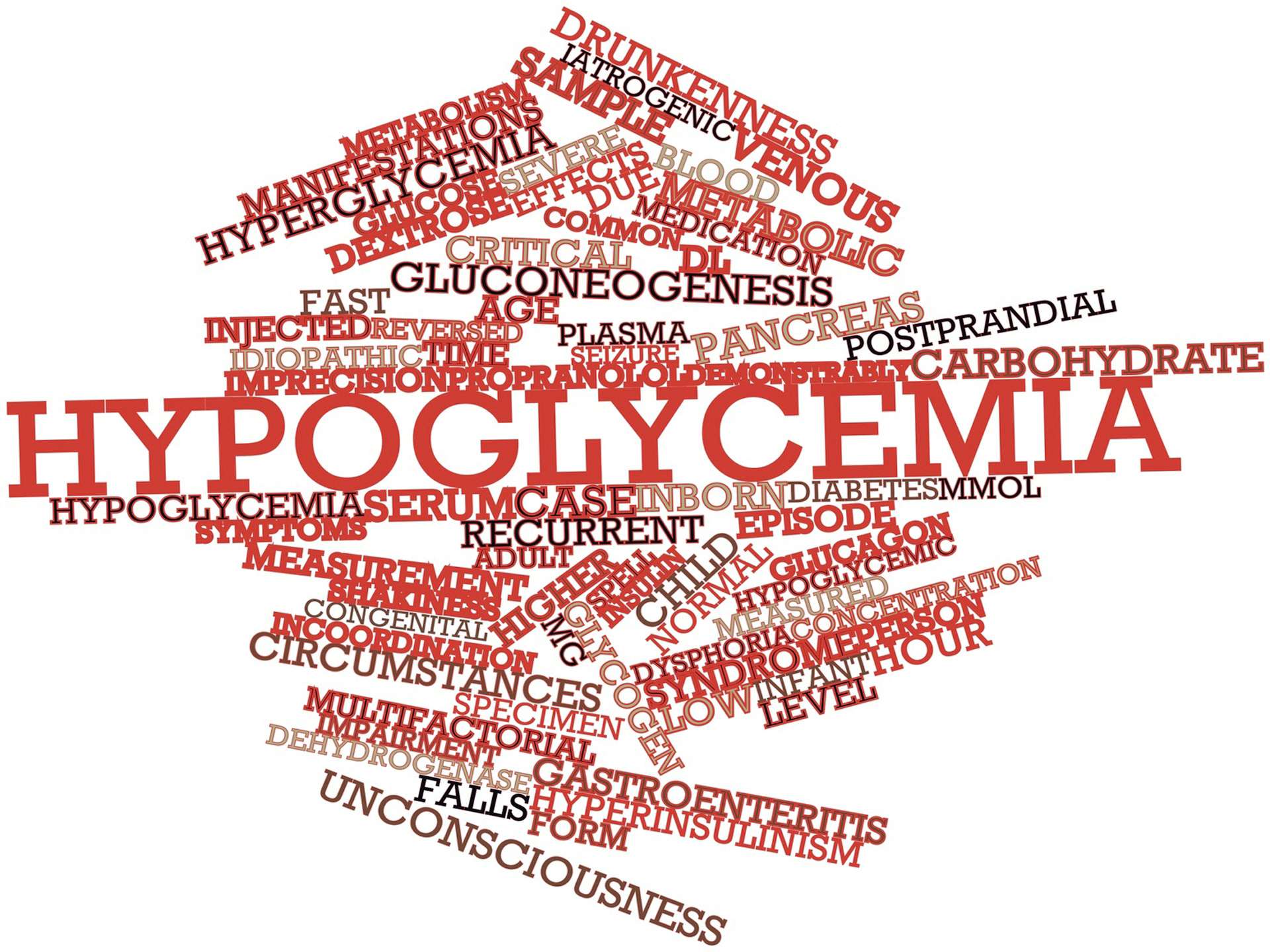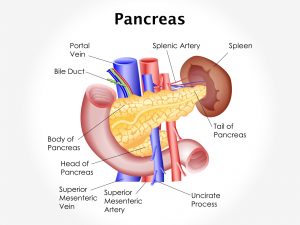Causes and risk factors:
Hypoglycemia is a major adverse effect of insulin treatment. Timely or increased doses of insulin along with insufficient dietary intake lead to hypoglycemia. Skipping of the meals, fasting and continuation of insulin or oral anti diabetic drugs often lead to hypoglycemia. Low blood sugar levels also occurs secondary to alcohol intake or due to certain diseases. Thyroid affections, liver diseases, and gastrointestinal affections like malabsorption syndrome causes decrease levels of sugar in blood. Malignant conditions of the pancreas and enzyme deficiencies like Glycogen synthetase enzyme or glucose 6 phosphatase are the other contributing factors.
Clinical presentations:
The manifestations depend upon of rate of fall in the levels of blood glucoses and the endocrinal capacity to undermine it. Patient will commonly complain of weakness, headache, giddiness and sweating. Palpitation, nervousness, anxiety and mental confusion can also be seen. This can progress to unconsciousness, convulsion and coma. Repeated attacks of hypoglycemia can hamper the intellect and cause changes in the behavior of the individual. In long run obesity and Whipple traids (history of low blood sugar levels, fasting blood sugar levels less than 40mg/dl and immediate recovery on having something sweet) are classically seen.
Diagnosis and investigations:
In cases of hypoglycemia diagnosis can be made on the basis of the symptoms narrated by the patient or attending relatives with proper history taken and the physical examination carried out by the doctor. Emergency bloods sugar levels checked on glucometers confirm the hypoglycemia Routine blood sugar levels are diagnostic. If low levels of blood sugar levels are caused due to other underlying diseases, certain other investigations like thyroid test, renal and liver function test and ultrasonaography are done. Every diabetic patient on insulin or oral anti diabetic drugs must have glucometer to monitor blood sugar levels.
Treatment:
Immediate administration of sweet/sugar/ carbohydrate is the necessary. In cases of unconsciousness immediate medical attention is needed. Intravenous administration of blood glucose levels and glucagon injections are given. In drug induced hypoglycemia the causative drugs should be stopped. A dietary change needs to be implemented. The underlying disease needs to be treated.
Other Modes of treatment
The other modes of treatment can also be effective in treating hypoglycemia. Homoeopathy is a science which deals with individualization considers a person in a holistic way. This science can be helpful in combating the symptoms. Similarly the ayurvedic system of medicine which uses herbal medicines and synthetic derivates are also found to be effective in treating the low levels of sugar in blood.





















